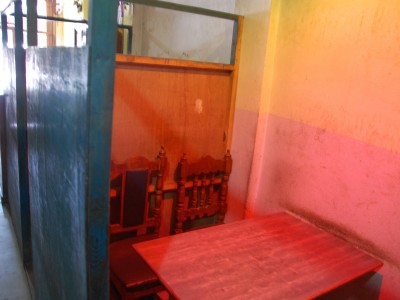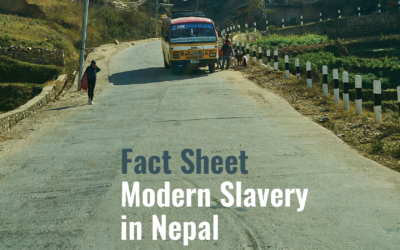Nepali officials have begun their first-ever systematic investigation of sex slavery inside Kathmandu restaurants and dance bars.
It’s raising hope that safety and freedom can be established for women who are secretly exploited and sexually harassed by owners and clients.
About 50,000 women and girls work in restaurants, dance bars and massage parlors in Nepal’s capital. Free the Slaves research has shown that nearly half of these workers have been forced to go out with customers or have sex with them at work.
In so-called “cabin restaurants,” known for their small private booths, women must satisfy customers’ every need behind drawn curtains. Many women told researchers that they were not allowed to quit.

Cabin restaurants are known for small booths where customers exploit waitresses when the curtains are drawn. Photo: Peggy Callahan for Free the Slaves
In January, authorities conducted their first systematic inspections of entertainment venues, accompanied by representatives of FTS frontline partner organizations Shakti Samuha and the Alliance Against Trafficking Women and Children in Nepal (AATWIN).
Nepal’s Supreme Court issued a regulation against sexual harassment at entertainment venues in 2008. Employers must pay the minimum wage and post a notice about worker rights.
But many establishments have ignored the ruling. It has required ongoing pressure by Nepali civil society organizations to get government officials into the streets to enforce the law. Activists have challenged government officials on live TV, and have even staged a sit-in at government offices to demand action.
The pressure has worked. The investigations are a major breakthrough, according to FTS Associate Programs Director Ginny Baumann.
“These initial inspections send out an important signal to the owners that authorities are ready to intervene,” Baumann says, “as well as showing the workers that their organized pressure on the authorities can get significant results.”
You can learn more about FTS projects in Nepal, as well as see the inside of a notorious “cabin restaurant,” in our documentary Turning the Tide: Fighting Slavery in Nepal.


